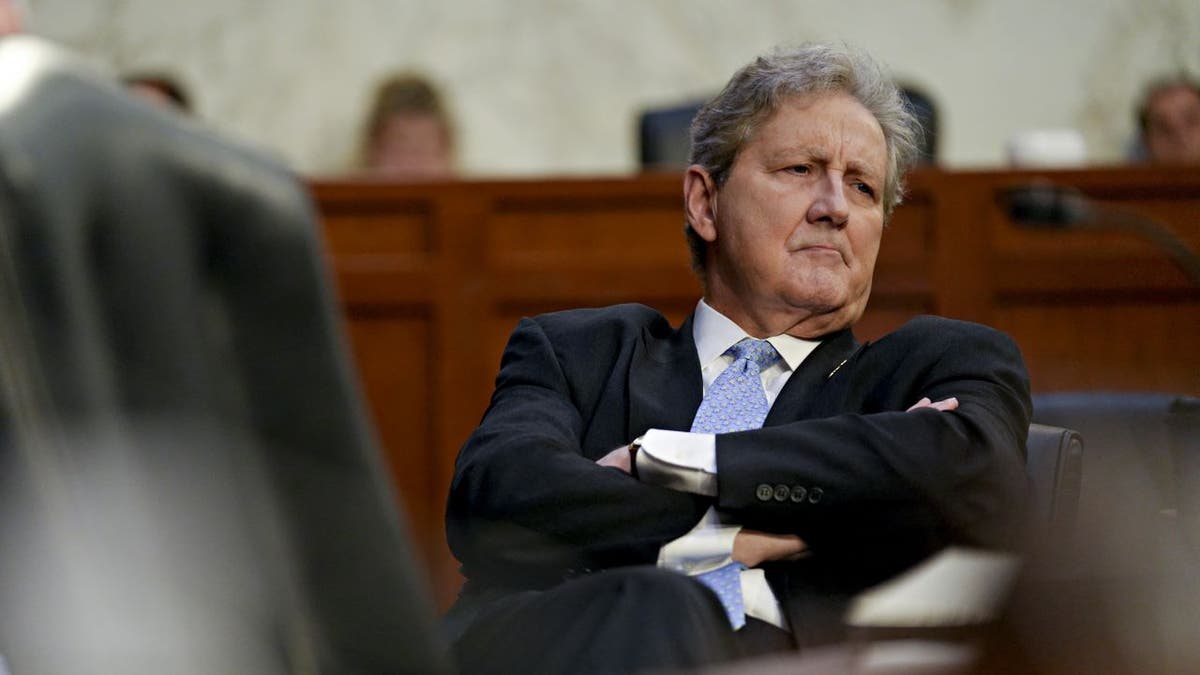Rep. Jim Jordan has just unveiled a game-changing bill that could redefine who’s eligible to lead America

Jim Jordan’s “American Birth” Bill Sparks National Debate Over What It Means to Be Truly American
WASHINGTON — A new bill introduced by Representative Jim Jordan (R-Ohio) has set Washington ablaze with controversy, reigniting one of the oldest and most divisive questions in American politics: What does it mean to be American enough to lead?
The proposed legislation, formally titled the “Born American Act,” would require that anyone seeking the presidency, vice presidency, or a seat in Congress be born on U.S. soil — effectively barring naturalized citizens from holding the nation’s highest offices.

Supporters call it a matter of patriotism and constitutional integrity. Critics denounce it as xenophobic, exclusionary, and fundamentally un-American.
And in a political climate already stretched thin by partisanship, Jordan’s bill may become the next ideological fault line to split the nation.
The Proposal: “American by Birth, American by Duty”
Unveiled at a press conference on Capitol Hill, Jordan’s bill lays out a simple but sweeping mandate: only individuals born in the United States to at least one American citizen parent would be eligible to run for or hold federal elected office.
“Our leaders should have roots that run deep into the soil of this country,” Jordan told reporters. “They should understand — not just intellectually, but instinctively — what it means to live and breathe American freedom.”
The congressman argued that the bill is designed to “preserve the founding spirit” of the nation, ensuring future leaders are grounded in its culture, values, and constitutional traditions.
“This is not about exclusion,” he added. “It’s about ensuring that those who make the laws of this land have lived under them their entire lives.”
The proposed amendment would go beyond the existing constitutional requirement that the president be a “natural-born citizen” — a term that has historically included people born abroad to American parents.
If passed, it would bar naturalized citizens — even those who have spent decades in the country — from running for president, vice president, senator, or representative.

The Backlash: “A Step Backward”
Within hours of the bill’s announcement, backlash was swift and fierce.
Civil rights advocates, immigrant groups, and constitutional scholars denounced the proposal as discriminatory and anti-immigrant.
Senator Alex Padilla (D-Calif.), the son of Mexican immigrants, called the bill “a betrayal of everything this nation stands for.”
“We are a country built by immigrants, defended by immigrants, and renewed by immigrants,” Padilla said. “To suggest that only those born here can lead here is not patriotism — it’s fear.”
The American Civil Liberties Union (ACLU) issued a statement calling the proposal “a dangerous and unconstitutional attempt to create two classes of citizenship.”
“This bill doesn’t strengthen democracy,” the statement read. “It weakens it by suggesting that birthplace, not merit, defines one’s love of country.”
Legal experts have also questioned whether the bill could withstand judicial scrutiny.
Professor Linda Chavez, a constitutional scholar at Georgetown University, noted that while Congress can regulate eligibility for congressional office through legislation, changing presidential qualifications would require a constitutional amendment — a process that demands ratification by three-fourths of the states.
“This proposal, in its current form, has no path forward without a constitutional amendment,” Chavez explained. “But the symbolism of it — that’s what will resonate politically.”
A Political Chess Move?
Some analysts see Jordan’s proposal less as a realistic piece of legislation and more as a strategic political message.
By introducing the Born American Act in the run-up to a high-stakes election season, Jordan is effectively staking a claim on one of the Republican Party’s most enduring talking points: the protection of “American identity.”
Dr. Nathan Klein, a political analyst at the Brookings Institution, described the bill as “performative nationalism.”
“Jordan knows this bill won’t pass — at least not in this Congress,” Klein said. “But that’s not the point. The point is to force Democrats to take a position that can be portrayed as ‘anti-American’ or ‘soft on immigration.’”
Indeed, Jordan’s rhetoric at the press conference echoed broader themes from recent GOP messaging — linking national pride, border security, and citizenship under a single, emotionally charged banner.
“We’re losing sight of who we are,” Jordan said. “This bill is a reminder that being an American is more than paperwork — it’s heritage, it’s sacrifice, it’s home.”
America’s Identity Debate
The firestorm surrounding the Born American Act comes amid a larger cultural debate about identity and belonging in a rapidly changing nation.
The United States has more foreign-born residents today than at any time in its history — over 45 million, according to U.S. Census data. Many are naturalized citizens who serve in the military, work in public service, and contribute billions to the economy.
For some, the idea that such citizens could never hold the country’s top offices feels like a repudiation of America’s core promise: that anyone, regardless of birthplace, can rise through merit and hard work.
“If Alexander Hamilton were alive today, he’d be disqualified under Jordan’s bill,” quipped one historian, noting that the founding father himself was born in the West Indies.
Immigrant advocacy organizations have also warned that such legislation could further polarize an already fractured electorate.
“This is not just about who runs for office,” said Maria Gomez, director of the National Coalition for Immigrant Rights. “It’s about who counts as fully American.”
The Road Ahead

Despite its explosive debut, the Born American Act faces long odds in Congress. With Democrats controlling the Senate and President Biden almost certain to veto any such measure, the bill is unlikely to become law in its current form.
Still, its political impact may be far-reaching. By injecting questions of loyalty, belonging, and identity into the 2026 campaign cycle, Jordan has ensured that the debate over what it means to be “truly American” will remain front and center.
“Legislation like this isn’t just about law,” said Klein. “It’s about storytelling. It’s about shaping how Americans see themselves — and who they think belongs in the story.”
The Question That Remains
In a way, the controversy surrounding Jordan’s bill reflects a paradox at the heart of the American experiment: a nation founded by immigrants, still struggling to define who gets to claim its future.
To its supporters, the Born American Act is a safeguard — a reaffirmation of loyalty and heritage. To its critics, it’s a betrayal of the very ideals it claims to defend.
But perhaps the deeper truth lies in the tension between those two visions.
Because for all the outrage and rhetoric, the question remains the same — one as old as the republic itself:
Who gets to call themselves American?
And maybe, just maybe, that’s the conversation Jim Jordan always wanted to start.
THIS JUST HAPPENED: Sen. Kennedy SHUTS DOWN NBC’s Yamiche Alcindor—The Viral Exchange That Left the Press Room in Total Silence

What started as a routine press briefing exploded into one of the most talked-about moments in recent memory. When NBC’s Yamiche Alcindor confronted Sen. Kennedy with a loaded question about a controversial video, she likely expected a defensive stumble—not the surgical takedown that followed. Kennedy’s icy calm, unflinching stare, and devastating response turned the room stone cold. Within minutes, reporters stopped scribbling. Within hours, NBC was scrambling. Now, insiders say Alcindor may face serious blowback—while fans are calling this Kennedy’s “coldest mic-drop moment yet.” So what exactly triggered the collapse? The footage says it all… and it’s spreading fast.

What began as a routine Senate press briefing on Capitol Hill has now become a viral media firestorm, after an intense and unexpected exchange between Senator John Kennedy (R-LA) and
NBC correspondent Yamiche Alcindor left the entire press room frozen in stunned silence. Within minutes, the clip lit up social media — and within hours, it was clear: something big had just happened.
The incident took place Wednesday afternoon during a post-committee briefing on government oversight and online disinformation. As Kennedy fielded questions from a roomful of reporters, Alcindor took the mic and launched into a pointed question about a controversial video circulating online — one that allegedly showed Kennedy making off-the-cuff comments critics described as “tone-deaf” and “partisan.”

“Senator,” Alcindor began, “how do you justify defending the content of that video when it clearly dismisses the lived experiences of so many marginalized Americans? Don’t you think, as a public official, you should be more mindful of the impact your words have on vulnerable communities?”
The room grew still, anticipating a flustered reply — or at least some political backpedaling. But Kennedy didn’t blink.
Instead, he leaned into the mic, fixed Alcindor with a calm, unflinching stare, and delivered a devastatingly precise response that silenced the room.
“Ms. Alcindor, I understand the question you think you’re asking, but it’s built on a false premise — and a video clipped out of context by people who want a villain more than they want the truth.”
He continued, voice steady but firm:
“If your job is to report facts, not feelings, then I’d invite you to actually watch the full clip — not the version tailored for outrage clicks.”
And then, the mic-drop moment:
“I didn’t run for Senate to star in someone else’s narrative. So if you want answers, start with facts — not headlines.”
The room went silent. Reporters paused mid-sentence. Some put down their pens. Alcindor appeared momentarily stunned and did not offer a follow-up.

Within moments, footage of the exchange hit social media — and the reaction was explosive.
The clip racked up over 10 million views on X (formerly Twitter) in just six hours, with users across the political spectrum weighing in. Conservative commentators hailed Kennedy’s response as “a masterclass in staying cool under fire,” while even some moderates and press veterans acknowledged his composure.
“You don’t have to agree with Kennedy to admit he handled that with surgical precision,” one journalist posted. “He didn’t dodge. He dissected.”
Supporters praised Kennedy’s delivery as calm, intelligent, and brutally honest.
“That wasn’t a meltdown. That was a takedown,” tweeted one user.
“Kennedy didn’t lose his cool — he used it,” wrote another. “He turned a trap question into a teachable moment.”
At the same time, critics of Alcindor’s approach began to surface, with some insiders saying NBC executives were “reviewing the optics” of her question and its aftermath. While NBC has not released an official statement, multiple reports suggest the exchange caught leadership off guard — especially given the wave of backlash now aimed at the network’s perceived bias.
Others have rallied around Alcindor, arguing that tough questions are part of journalism and should not be punished. Still, even among her defenders, some acknowledge that the framing of her question — particularly referencing “lived experiences” in a political context — may have played into Kennedy’s hands.
Political strategist and analyst Jenna Wallace weighed in:
“Senator Kennedy is a skilled communicator. He saw the trap and stepped over it without raising his voice. What he did wasn’t just a rebuttal — it was a message to the media: if you’re coming for soundbites, be prepared for substance.”
As the moment continues to ripple through Washington and beyond, some are already calling it “Kennedy’s coldest mic-drop moment yet.” And with speculation swirling about its potential impact on upcoming hearings and media relationships, one thing is certain:
the political-media divide just got wider — and a whole lot colder.
What triggered the collapse? The footage speaks for itself — and America is watching.




